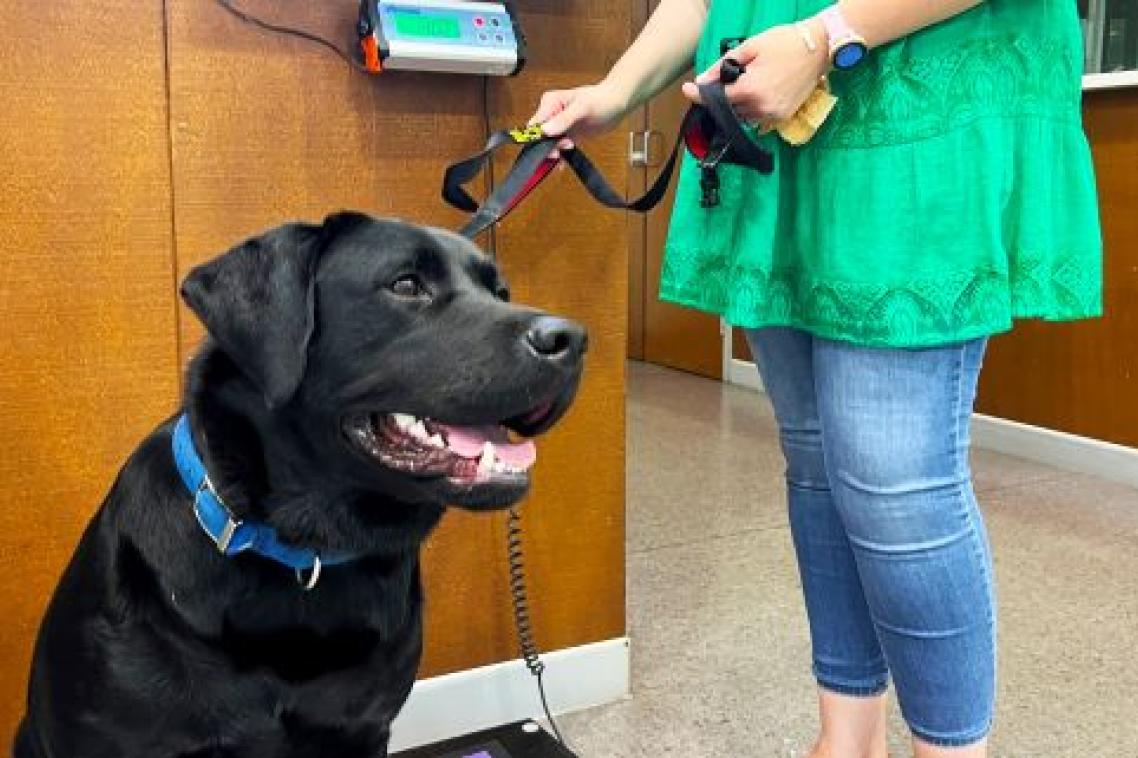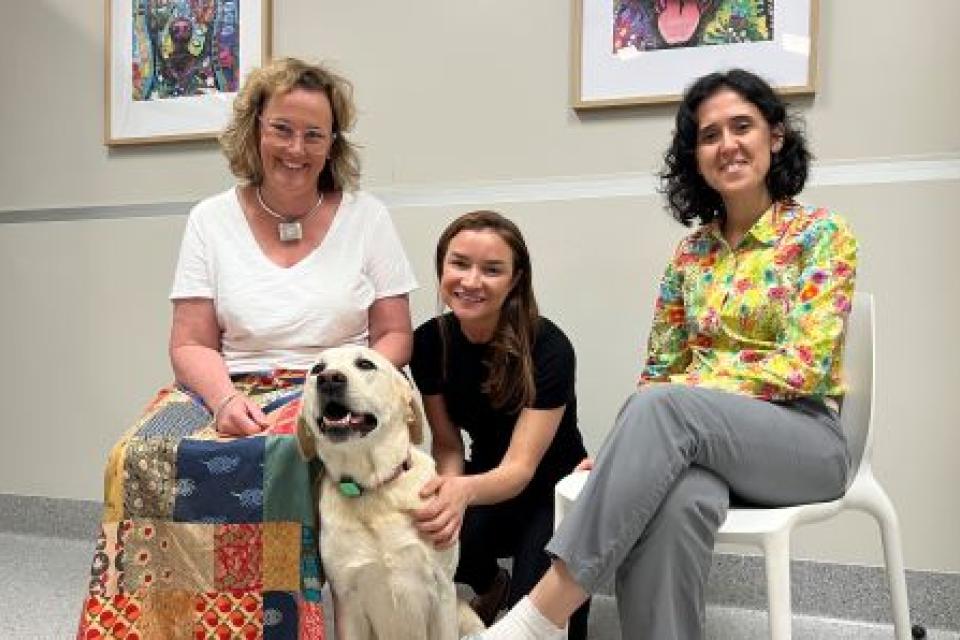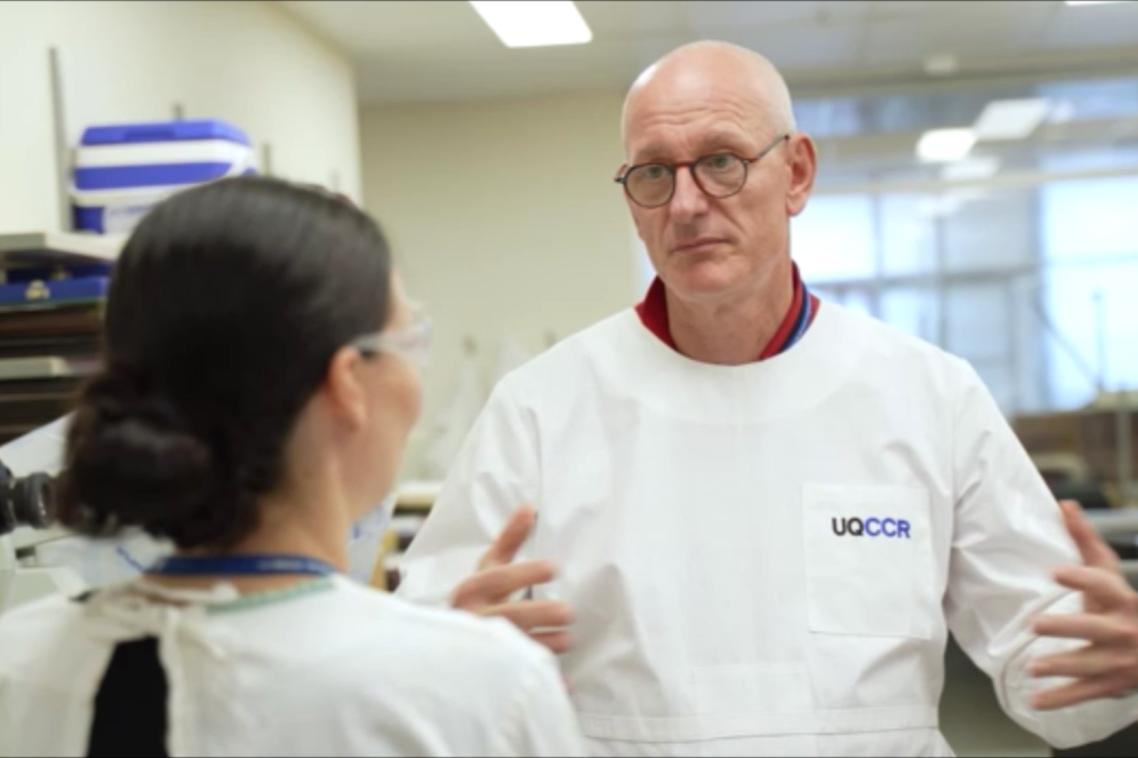UQ obesity study needs dog volunteers

Vets at The University of Queensland are investigating how overweight golden retrievers and labradors are affected by their curvy physique.
Chief investigator Dr Erika Meler from the School of Veterinary Science said the research would focus on the health and wellbeing of dogs by monitoring metabolism, gut health, fat distribution and brain function.
“We’d like more pet owners to sign up to the study, whether their dogs are a healthy weight or on the curvier side,” Dr Meler said.
“Labradors and golden retrievers are renowned for loving their food, but being overweight can have a negative influence on their health.
“The findings from this study will further our knowledge of the link between gut health, fat tissue, metabolism and brain function.
“The findings could help prevent and manage obesity’s impact on dogs and provide useful data for human health as well.”
As part of the 28-week study, dogs will have a tailored exercise program, wear an activity tracking collar and get a free meal plan.
PhD candidate Priscila Curso Almeida said veterinary professionals would perform all examinations during the study, including taking body measurements, scoring body condition and cognitive function tests.
“Stool and blood samples will be collected from the dogs to further evaluate gut bacteria and blood metabolites, along with other non-invasive practices.
“Pet parents will be invited to answer questions about their dog to understand their dog's mind and find out how we can improve their cognition and quality of life.”

Labrador owner Lisa Gore enrolled her dog Willow in the study to ensure Willow is kept as healthy as she can be.
“We had an overweight labrador in the past, so we know how hard it is to help dogs lose weight,” Ms Gore said.
“It’s really important especially for labradors to be conscious of their diet and exercise.
“We want Willow to be enjoy a long life and be healthy and happy.
“Being involved in the trial is great, the kids are on the app every night seeing what Willow is doing, how long she slept and whether she’s reached her exercise goal for the day.”
To participate pet owners must be willing to travel to the UQ Gatton Veterinary Medical Centre 4 times over the 7-month span of the study and for their dog to undergo a free health assessment prior to enrolment.
Check eligibility and apply to participate via The Retriever Study web page.
The study is supported by Hill’s Pet Nutrition.
Image above left: Pet owner Lisa Gore, Phd candidate Priscila Curso Almeida, Willow the dog and lead researcher Dr Erika Meler.
Media assets:
Images available via Dropbox.
Media contact:
UQ Communications
communications@uq.edu.au
+61 429 056 139
Related articles

A meeting of the minds that could transform treatment

UQ experts recognised for national impact
Media contact
UQ Communications
communications@uq.edu.au
+61 429 056 139
